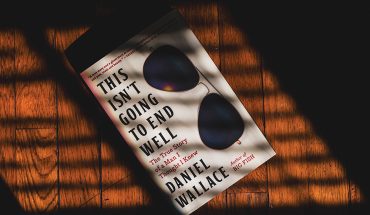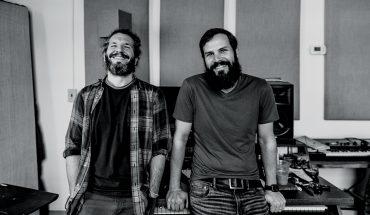This novelist based in Rocky Mount is forging her own path through her writing, teaching and a community bookstore and coffee shop.
By Wiley Cash | Photography by Mallory Cash
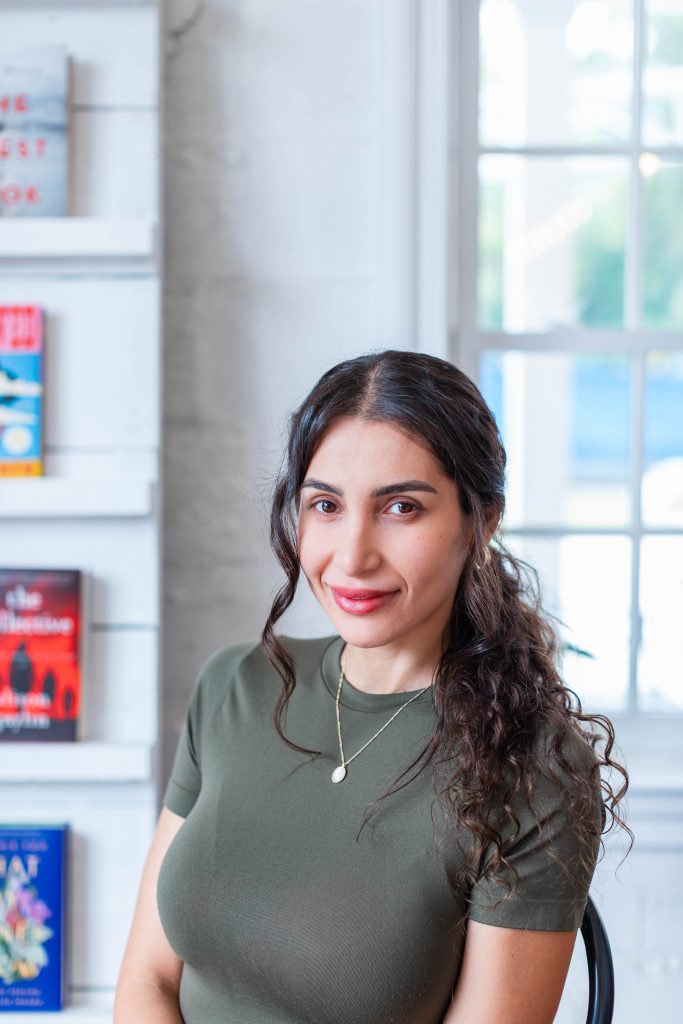
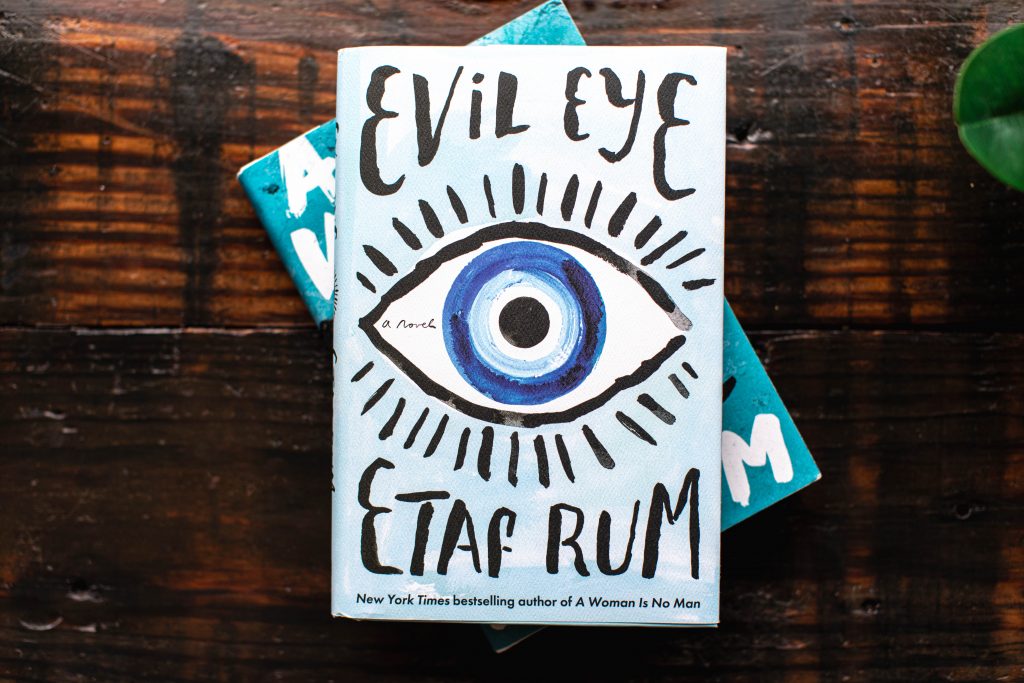
Rocky Mount-based writer Etaf Rum’s new novel Evil Eye is the story of a Palestinian American woman named Yara Murad who’s struggling to reconcile her identities of wife, mother, artist, professor, native Brooklynite and transplanted Southerner. From the outside, it looks like Yara has it all: a husband who supports her work at a local university; two sweet, young daughters; a career teaching the art she loves. But as the novel opens, the reader watches Yara careen through her days in a silent, stifling panic, something unspoken and unfulfilled bubbling beneath the surface of her life.
Yara’s angst finds an outlet when she responds to a colleague’s shocking display of bigotry, but she isn’t prepared for the repercussions that follow. Her mother explains that Yara’s struggles are the result of an old family curse, and she dismisses Yara’s frustration by saying that she should be happy that her husband has given Yara more freedoms than Yara’s father gave her.
Many writers would lean into the trope of the age-old curse to carry their plots, but Rum never relies on gimmicks or stereotypes. Instead, this character-driven novel investigates the ways in which we curse ourselves by settling for jobs and relationships that don’t fulfill us.
Evil Eye is a book about the monotony of unfulfilled days (and nights), yet Rum has crafted this finely drawn portrait of domestic life into a page-turner.
“Actually, I felt like my first novel was a real page-turner, but one that I intentionally crafted to be so,” she says. “With Evil Eye, I did not want to write another page-turner. But as a writer you want to keep the story interesting and you want the readers turning the pages. And I think for me, I had to challenge myself to write a character portrait.”
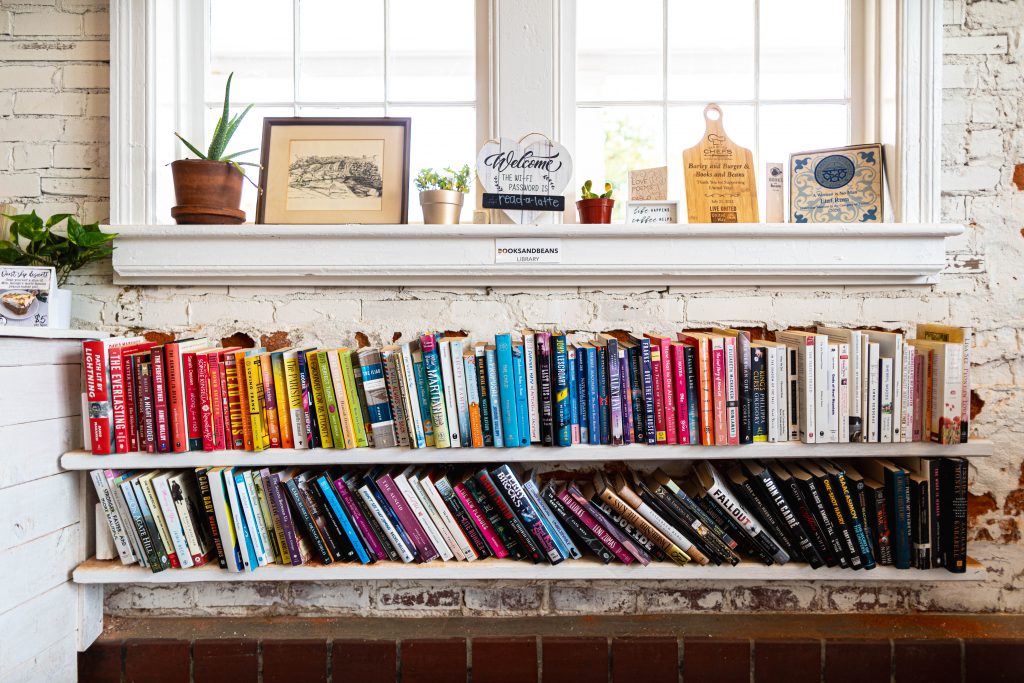
She is sitting at the counter at Books and Beans, a coffee shop and bookstore she owns with her husband Brandon in Rocky Mount. Light streams through the windows, making the white walls appear even brighter and the terra cotta tile floors richer and more resonant.
“I was really interested in exploring the internal life of this character in an authentic way, and I hoped and I prayed that doing so would lend a readability that is relatable, authentic and helps you get into the story,” she says.
“My intention was that it would be her personality and her character and all the things that we don’t know about her past that would motivate the reader to keep going.”
This reader kept going. I finished the novel in a couple of days.
But reading Evil Eye wasn’t always a comfortable experience. While we are firmly grounded in Yara’s point of view and privy to her difficult childhood, we also have front-row seats to the many anxieties she confronts in her everyday life.
These anxieties are manifested in the workplace (in this case higher education), on social media, in her role as a mother and wife, and in her struggles to pursue her passion as an artist.
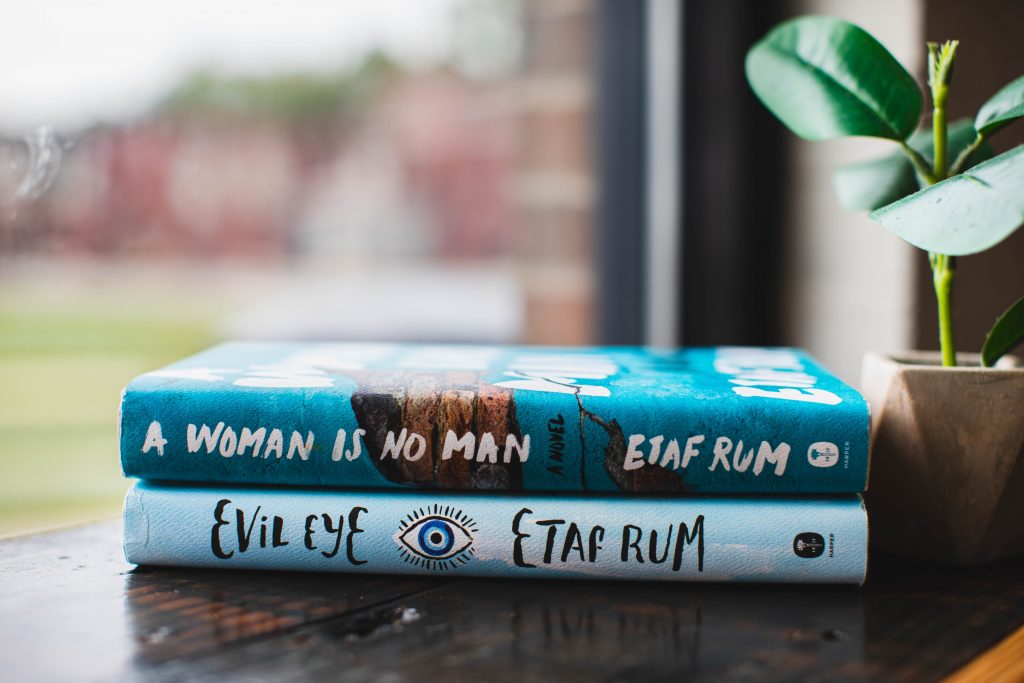
“I wanted to write about these issues in the perspective of a character we haven’t seen before, a Palestinian American woman, but someone who has these universal anxieties that are so common for everyone, regardless of race, religion or ethnicity,” Rum says.
It was her hope that in seeing themselves in Yara’s story readers might see someone like Yara for the first time.
“Most readers can’t possibly connect with having an arranged marriage, but maybe they can connect with being a young mother or feeling like their dreams are unfulfilled or feeling like they’re living their lives and doing all the right things, only to wake up one day feeling so unsettled, thinking, Wait, is this actually what I want?”
In one particularly affecting scene, Yara opens Instagram, poised to post a photo in the hopes of proving that her life is more fulfilling than it actually is, but then she pauses, pondering the ways in which social media is often an aspirational portrayal of the lives we want instead of the ones we’re willing to pursue.
For Yara, the question in Evil Eye is whether or not she will ever reach for what she wants and deserves, or will she spend the rest of her life simmering and settling for the life she has?
“Why do we settle for what’s comfortable?” Rum asks. “Because we want to avoid the pain of growth.”
For Rum, Instagram surprisingly became a place for her to manifest her aspirations. Long before her debut novel A Woman Is No Man became a New York Times bestseller and a book club selection by TODAY’s Jenna Bush Hager, Rum was teaching English at Nash Community College. Before each class began, she regularly shared two of her greatest loves with her students.
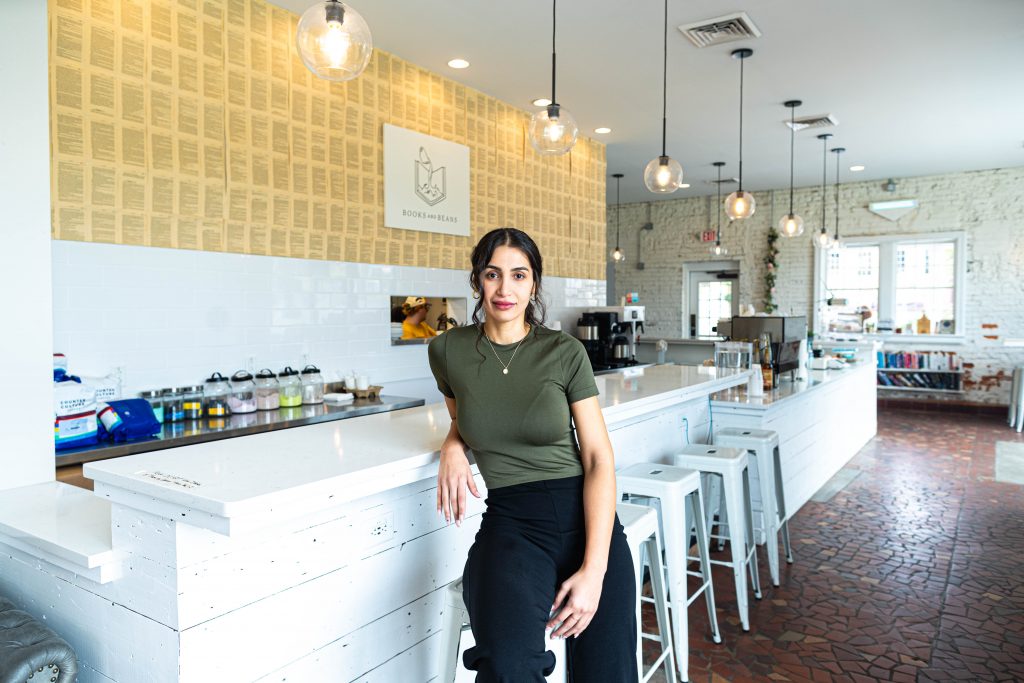
“I would bring my students coffee and book recommendations,” she says. “And eventually they would ask, What are you reading now? And so I created an Instagram account called Books and Beans, and it was like a joke between all of us. That was the year I started writing A Woman Is No Man.”
The Instagram page quickly garnered notice well beyond the walls of the college, and Rum soon found herself as an ambassador of the Book of the Month Club, helping them promote their selections through her Instagram account. Later, when her first novel was published in 2019, it actually included a coffee shop called Books and Beans. Writers call this foreshadowing.
This was around the time a development group was renovating Rocky Mount Mills into an 82-acre campus combining retail, dining and residences. There was a particular part of the campus Rum had her eye on.
“They had a stand-alone old canteen building they wanted to open up as a coffee shop,” she says. “And so a bunch of people went to them and said, Hey, we can open a coffee shop, and I was one of them. My husband Brandon worked in restaurants his whole life, so I said, alright, you can help me with the business side of things.”
They pitched their vision to the developers, and Books and Beans was born.
“It was my way of creating space for myself with things that I loved, and it was also my way of saying; hey, you can do whatever you want to do. There’s nothing out of reach for you. Just believe in it. The coffee shop was literally a manifestation of a dream that I’d had on social media, and we turned it into a physical building.”
A few years later, the shock still hasn’t worn off. Rum continually finds herself mesmerized by the fact that a Palestinian American woman born and raised in Brooklyn could create a community foothold in a small Southern town like Rocky Mount.
“Every time I walk past it, I remind myself that there are girls like me who think they have no business running a shop. All it takes is believing that you could become part of something, right? If you don’t see that vision for yourself, if you don’t believe in it, then it will never happen.”
Cursed or charmed, coffee or beans, it all comes down to hard work and dreams.
This article originally appeared in the November 2023 issue of WALTER magazine.


